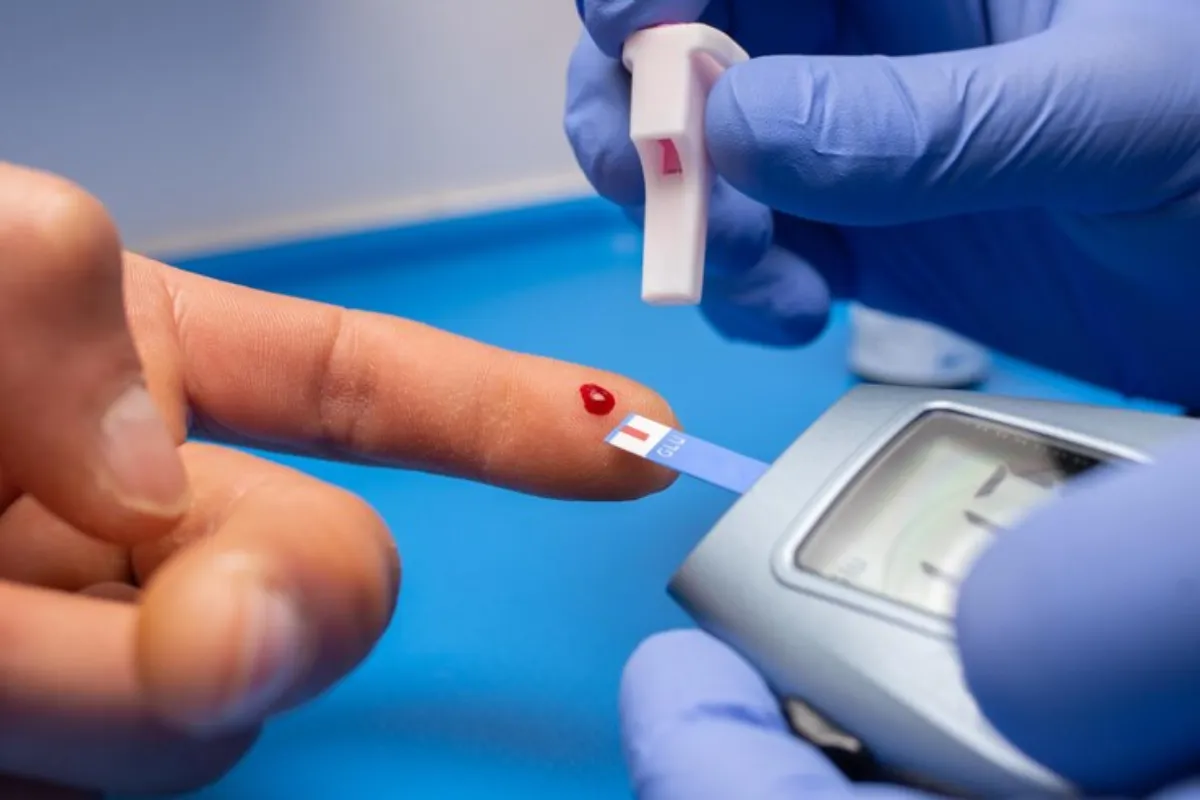Diabetes is a condition that affects how your body handles glucose, a type of sugar found in your blood. It’s a long-term problem that can lead to serious complications, especially for your kidneys and heart. Here’s what you need to know about managing diabetes to keep your kidneys and heart healthy.
Understanding the Silent Threat
Diabetic nephropathy is a complication of diabetes that damages the tiny filters in your kidneys called nephrons. These nephrons are responsible for removing waste products and excess fluids from your blood. Often, diabetic nephropathy progresses with minimal symptoms in the early stages, making regular checkups and urine tests crucial for early detection.
How High Blood Sugar Hurts Your Kidneys
When your blood sugar is consistently high, it overworks the nephrons, eventually damaging them. Damaged nephrons become less effective at filtering waste, leading to a buildup of toxins in your bloodstream. This can further worsen kidney function and eventually lead to chronic kidney disease (CKD) and kidney failure.
Left untreated, diabetic nephropathy can progress through several stages. Early signs may include the presence of albumin, a protein, in your urine. As the condition worsens, you may experience high blood pressure, swelling in your ankles and feet, and a decreased need for insulin. Eventually, complete kidney failure can occur, requiring dialysis or a kidney transplant for survival.
Heart Disease – A Multifaceted Threat from Diabetes
Diabetes increases your risk of heart attack, stroke, and other cardiovascular complications in several ways. Here’s how uncontrolled blood sugar harms your heart and blood vessels.
- Clogged Arteries:
High blood sugar levels promote the buildup of plaque, a fatty substance, on the walls of your arteries. This narrowing of arteries (atherosclerosis) reduces blood flow to your heart and other organs, significantly increasing the risk of heart attack and stroke.
- High Blood Pressure:
Diabetes also puts you at a higher risk of developing high blood pressure (hypertension). This further strains your heart and blood vessels, worsening cardiovascular health.
- Nerve Damage
Diabetes can damage nerves that control your heart and blood vessels. This disrupts their normal function and can lead to irregular heartbeats or abnormal blood vessel constriction, increasing the risk of complications.
Your Roadmap to Healthy Living
The good news is that you can significantly reduce your risk of kidney and heart problems by effectively managing your diabetes. Here’s a roadmap to guide you towards a healthy lifestyle.
- Eat Right, Move Your Body, Maintain a Healthy Weight:
A balanced diet that is low in processed foods, added sugars, and unhealthy fats is essential. Focus on whole grains, fruits, vegetables, and lean protein sources. Regular physical activity, even moderate exercise for 30 minutes most days of the week, can significantly improve blood sugar control and overall cardiovascular health. Losing excess weight, even a modest amount, can significantly improve your blood sugar control and reduce stress on your kidneys and heart.
- Blood Sugar Monitoring:
Regularly monitoring your blood sugar levels helps you understand how your body reacts to food, exercise, and medication. This information is crucial for making adjustments to your diabetes management plan. Discuss your blood sugar goals and the frequency of monitoring with your doctor. They can recommend the best approach based on your individual needs.
- Taking Medication as Prescribed:
Taking your diabetes medications as directed by your doctor is essential for maintaining good blood sugar control. This may include oral medications or injectable insulin. Discuss the benefits and potential side effects of your medications with your doctor. Don’t hesitate to ask questions and ensure you understand how each medication works.
- Building Your Healthcare Team:
Work with your doctor, including specialists like urologists (for kidney health), nephrologists (for advanced kidney disease), and cardiologists (for heart health), for a comprehensive approach to managing your diabetes and protecting your organs. Regular communication with your healthcare team is essential. Discuss any concerns you have about your diabetes or your kidney and heart health.
Government Initiatives in India
The Department of Health & Family Welfare, Government of India, provides support through the National Programme for Prevention and Control of Non-Communicable Diseases (NP-NCD) as part of the National Health Mission (NHM). This program focuses on:
- Strengthening healthcare infrastructure: The program has led to the establishment of
- 724 District NCD Clinics
- 210 District Cardiac Care Units
- 326 District Day Care Centres
- 6110 Community Health Centre NCD Clinics
- Training healthcare workers: This improves the capacity of the healthcare system to manage NCDs effectively.
- Promoting awareness and early detection of diabetes and other non-communicable diseases (NCDs): Early detection is crucial for preventing complications.
- Providing treatment facilities at various levels: This ensures access to essential healthcare services across the country.
The NHM also includes a population-based initiative for NCD screening. People above 30 are targeted for screening for diabetes, hypertension, and common cancers. This initiative helps identify individuals at risk and allows for early intervention.
Living Well with Diabetes
By making consistent efforts towards managing your diabetes, you can significantly reduce the risk of kidney and heart complications. Remember, a healthy lifestyle, regular checkups, and proper medication are key to living a long and healthy life with diabetes.
Disclaimer: This material, including advice, provides general information only. It is in no way a substitute for a qualified medical opinion. Take the methods, and claims mentioned in this article as suggestions only; DNP India does not confirm or refute them. Consult a doctor before implementing any such suggestions/ treatment/medicine/diet.












